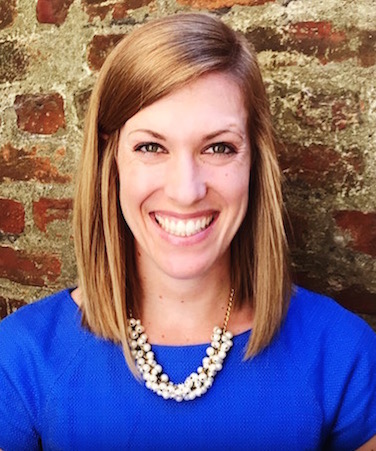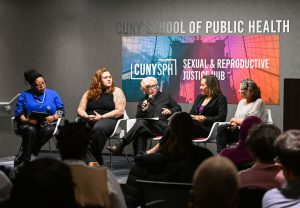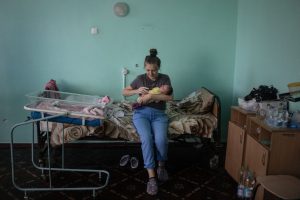A study by CUNY SPH alumna Abigail Lyons and faculty from the CUNY Institute for Implementation Science in Population Health (ISPH) reveals a concerning connection between parental emotional abuse and suicide attempts among adolescents during...
Panel of CUNY SPH students to present on critical leadership theory at APHA
Oct. 9, 2017
FILED UNDER:SPH Accolades
“Public Health Leadership Education and Practice” at the American Public Health Association Annual Meeting in Atlanta, GA in November. The students, Lillian Meharan, Katrina Mateo, Jennifer Lee, and Kristen Cribbs will be speaking about the need for critical leadership theory to be incorporated into public health pedagogy.
The session will present a new take on leadership competencies in public health education, and then highlight three examples where critical leadership theory was applied to analyze and unveil alternative or unconventional forms of leadership in existing public health work.
Ms. Mehran will present an analysis of a course taught by CUNY SPH Professor Nevin Cohen, who is also a co-author, where critical leadership theory was incorporated. Ms. Mateo, Ms. Lee, and Ms. Cribbs will discuss the case studies they each prepared as part of the course.
The following are summaries of each presentation.

Lillian Mehran will present: Teaching Public Health Leadership CriticallyPublic health schools are required to teach leadership competencies. Yet ensuring that leadership training promotes health equity and social justice requires moving beyond conventional leader-centric, traits-based theories of leadership, that reinforce power disparities and the status quo. A case study is presented of a doctoral seminar in leadership and organizational change that focused on critical theories of leadership. The outcomes of the course suggest the need to re-think public health leadership pedagogy.

Kristen Cribbs will present: Respect the work that makes all other work possible: Collective leadership and the New York domestic workers’ labor movementDomestic workers are one of the fastest growing segments of the United States (US) labor force. However, many domestic workers are vulnerable to subpar working conditions, exploitation, and abuse—and related economic and health repercussions— due to their systematic exclusion from federal labor protection policies. Following a six-year organizing campaign that was spearheaded by a domestic worker-led organization in New York (NY), Domestic Workers’ United (DWU), the NY State legislature passed the NY Domestic Workers’ Bill of Rights in 2010—landmark legislation that extended basic labor protections to domestic workers. Using DWU as a case profile, this presentation applies a collective leadership framework through a critical leadership lens to examine how the domestic workers’ movement achieved this legislative victory, as well as explores implications of the movement and utility of collective leadership theory to non-traditional labor organizing.

Katrina Mateo will present: Looking beyond backbone leadership: Collectivist leadership within a collective impact initiative to reduce childhood obesity and hungerAlthough Collective Impact (CI) is an innovative and structured approach to cross-sector collaboration aimed at achieving significant and lasting change, limited attention has been given to types of leadership that emerge or is required from successful CI initiatives. An existing CI initiative committed to reducing childhood obesity and hunger in one of the poorest and most challenged US cities was analyzed through the lens of adaptive leadership and collective leadership theories. Applying critical leadership theory in the evaluation of this initiative helped to distinguish between adaptive leadership characteristic/processes by the backbone leader and the collective leadership that community partners are distinctively engaged in. Collaborative frameworks, such as CI, should distinguish between different leadership approaches, as well as identify best practices in order to guide and sustain various forms of leadership among partners collaborating to improve community and public health.

Jennifer Lee will present: House Lives Matter a Leaderful MovementThe House Ballroom Community (HBC), an underground LGBTQ (lesbian, gay, bisexual, transgender, queer) and gender non-conforming subculture has been leading actions in large urban cities throughout the United States to address issues related to social justice and human rights, specifically health disparities related to economically rooted issues that impact health outcomes, such as the HIV/AIDS epidemic. The HBC is a unique and intriguing space that posits new leadership paradigms for social change within a more humanistic world view where the interrelatedness of individuals and moral interests about the social impact of collective actions are no longer considered peripheral issues. However, there is limited information on the leadership practices of this community that has for decades kept many of its members alive and has sustained its survival. This paper advances the concept of leaderful movements, full of leadership actors who influence social change movements in various ways. One of the most important contributions of the paper is that it makes us aware of how a community and the interactions of its members contribute to spaces that foster leadership, resulting in leaderful leadership and movements that challenge a reductionist understanding of leadership.



